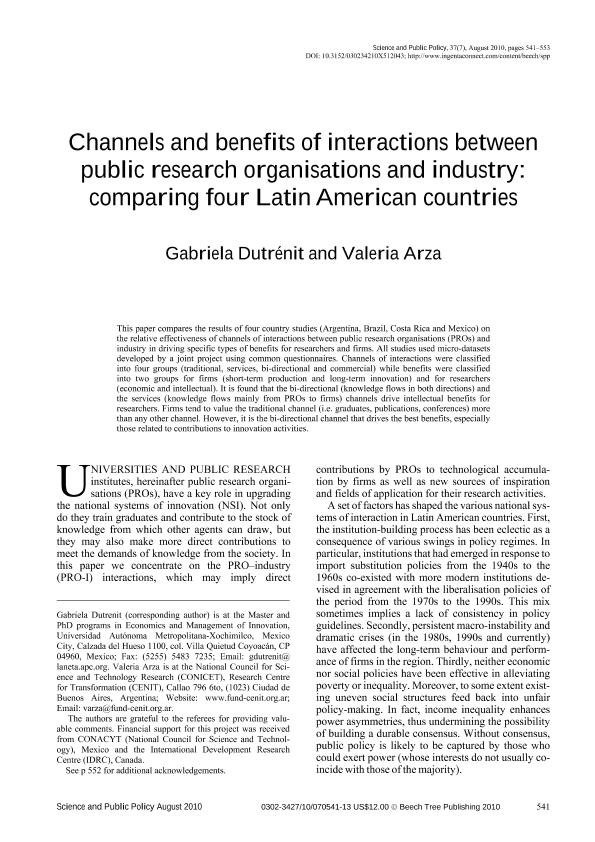Artículo
Channels and benefits of interactions between public research organisations and industry: Comparing four Latin American countries
Fecha de publicación:
08/2010
Editorial:
Beech Tree Publishing
Revista:
Science and Public Policy
ISSN:
1471-5430
Idioma:
Inglés
Tipo de recurso:
Artículo publicado
Clasificación temática:
Resumen
This paper compares the results of four country studies (Argentina, Brazil, Costa Rica and Mexico) on the relative effectiveness of channels of interactions between public research organisations (PROs) and industry in driving specific types of benefits for researchers and firms. All studies used micro-datasets developed by a joint project using common questionnaires. Channels of interactions were classified into four groups (traditional, services, bi-directional and commercial) while benefits were classified into two groups for firms (short-term production and long-term innovation) and for researchers (economic and intellectual). It is found that the bi-directional (knowledge flows in both directions) and the services (knowledge flows mainly from PROs to firms) channels drive intellectual benefits for researchers. Firms tend to value the traditional channel (i.e. graduates, publications, conferences) more than any other channel. However, it is the bi-directional channel that drives the best benefits, especially those related to contributions to innovation activities.
Archivos asociados
Licencia
Identificadores
Colecciones
Articulos(SEDE CENTRAL)
Articulos de SEDE CENTRAL
Articulos de SEDE CENTRAL
Citación
Dutrénit, Gabriela; Arza, Valeria; Channels and benefits of interactions between public research organisations and industry: Comparing four Latin American countries; Beech Tree Publishing; Science and Public Policy; 37; 7; 8-2010; 541-553
Compartir
Altmétricas




